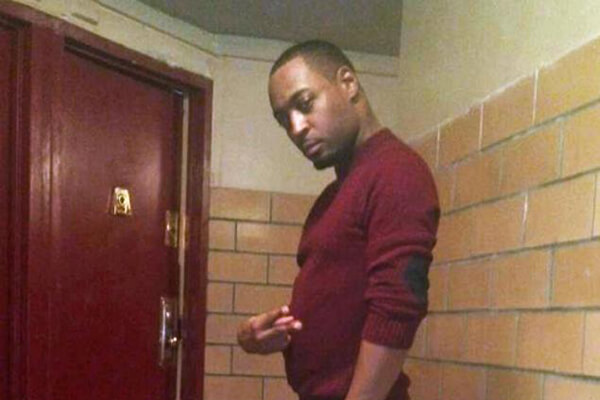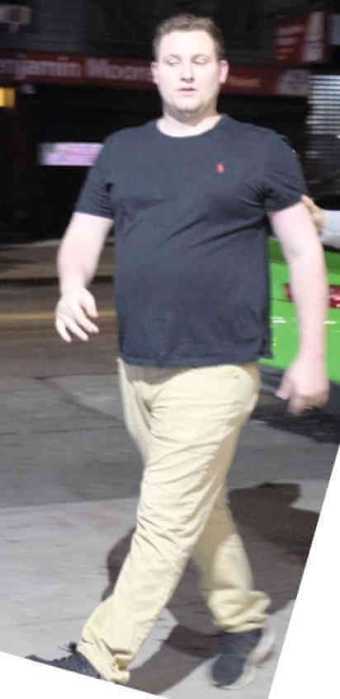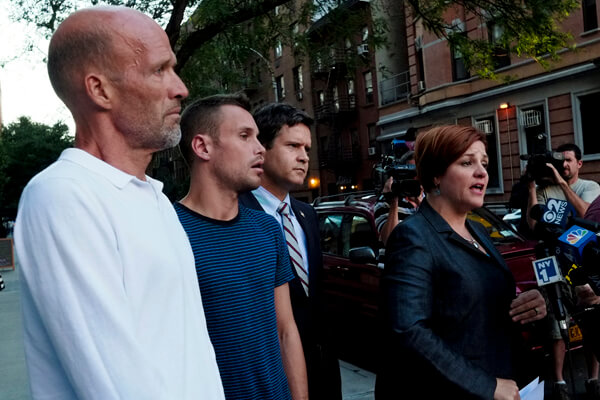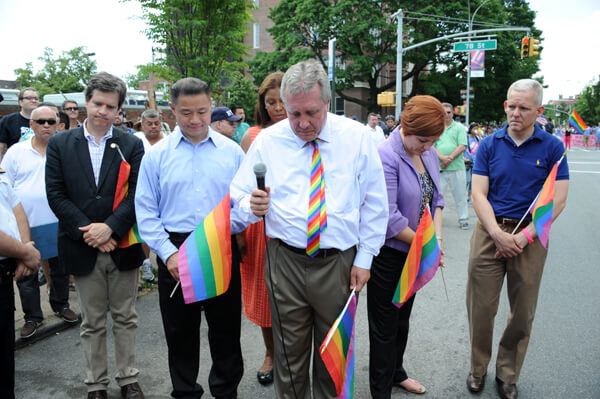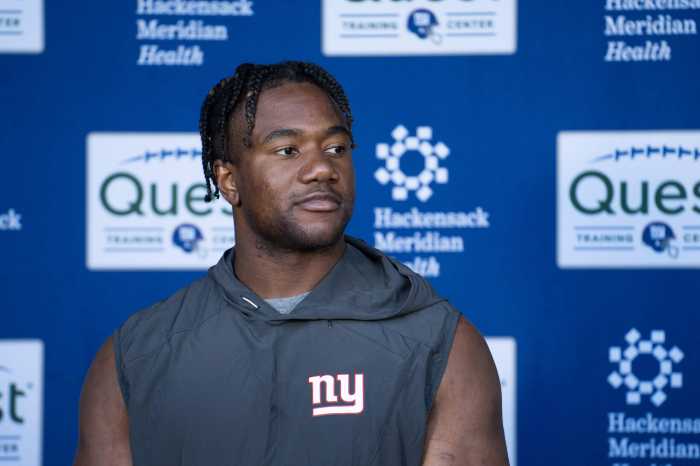Elliot Morales during his trial on second-degree murder as a hate crime and other charges. | JEFFERSON SIEGEL
Elliot Morales, convicted in March of second-degree murder as a hate crime in the May 2013 close-range shooting of Mark Carson, a gay man, in the West Village, has been sentenced to 40-years-to-life in prison.
In imposing the sentence on June 14, Judge A. Kirke Bartley of Manhattan Supreme Court said a “chilling video” statement Morales made to police after his arrest betrayed “an evil nature” like “a character out of a Steven King novel –– in short, a monster.”
Shannon Lucey, the assistant district attorney who prosecuted the case, asked for the maximum sentence for Morales, saying that Carson was “executed for being a proud openly gay man.”
In a written release after the sentencing, Cyrus Vance, Jr., the Manhattan district attorney, said, “Any life lost to gun violence is a tragedy for our city. But homophobic, hate-fueled incidents like this one are particularly unconscionable. As we mourn the lives lost in Orlando, we remain committed to doing everything we can to combat and prevent crimes against LGBT New Yorkers. We must never allow violence and hate to undermine the progress we have made as a city, a state, and a nation.”
At trial, witnesses testified that Morales, 36, encountered Carson, 32, and his friend, Danny Robinson, on Sixth Avenue near West Eighth Street. As the men argued, with Morales using anti-gay slurs, they moved north and then onto Eighth Street where Morales first displayed a gun and then fired a single shot, striking Carson in the head and killing him. Morales fled east on Eighth Street and was caught by Henry Huot, a uniformed police officer, moments after the shooting. When he was captured, Morales made statements that police recorded in which he admitted killing Carson.
In testifying, Morales, who represented himself, with the assistance of a legal advisor, Adam Freedman, claimed he believed Carson was armed and about to shoot him. He also said that he was drunk, and in cross-examining Robinson elicited testimony that he and Carson had also been drinking.
Though the jury was given the leeway to consider both a self-defense justification and the possibility that Morales’ intoxication meant he did not have the legally required mental state to be guilty, the jury returned a verdict roughly one day after being sent to deliberate.
Contrasting Morales’ preparedness in the courtroom with the impression he left in his videotaped statement –– where he said of Carson, “I fucking shot him dead. Diagnosis dead doctor.” –– Bartley said, “You remain as much an enigma to me as the first day you walked into this court.”
The judge also said, “I can’t say I’m surprised that you refuse to accept responsibility for what you’ve done.”
Mark Carson was 32 when he was gunned down in the West Village in May 2013. | NYPD HANDOUT
That statement came in response to comments Morales addressed to Carson’s family and friends during the sentencing hearing, when he described the victim’s death as “a tragic accident” for which he was “really, really, truly sorry.” Morales also used that occasion to claim that Carson died due to the negligence of emergency medical personnel who he claimed did not administer oxygen to the dying man but rather stood around “arguing and shoving each other.”
In addressing the court, Morales, who indicated he would appeal his conviction, said it was “beyond my comprehension” how he could be convicted of a hate crime against a gay man since he himself claims to be bisexual.
Robinson testified at trial that Morales called him and Carson “faggot” among other “angry slurs.”
In his statement at sentencing, Morales also asserted that comments a juror made to the Daily News after his conviction were evidence of bias against him during his trial.
Prior to the sentencing, Morales asserted a variety of procedural claims, which Bartley found were “not inextricable” with the court moving forward with sentencing. The judge also rejected Morales’ efforts to claim that a prior violent felony conviction should not be considered in rendering a sentence.
In addition to the conviction on second-degree murder as a hate crime, Morales was found guilty on five counts of criminal possession of a weapon, one count of menacing Henry Huot, the police officer who arrested him, and one count of menacing a gay bartender at a West Village restaurant prior to the shooting of Carson. He was sentenced to 25-years-to-life on the murder conviction and must serve a 15-year sentence consecutively on one of the weapon possession charges, so he would not be eligible for parole until he had served the 25-year minimum for murder plus six-sevenths of the 15-year weapon conviction sentence.
After the sentence had been handed down and Bartley was prepared to adjourn the case, Morales attempted to speak again. The judge, standing up, said, “You will not have the last word here,” and walked out of the courtroom.
Outside the courtroom, Florine Bumpars, Carson’s aunt, asked what she would say to Morales if she had the chance, responded, “I have nothing to say to him. He got what he deserved.”

